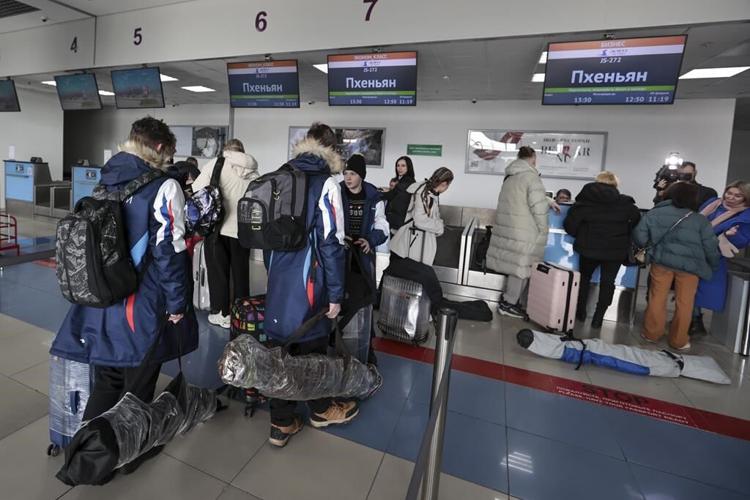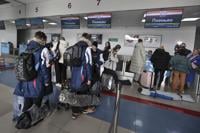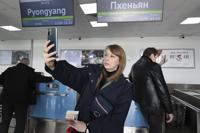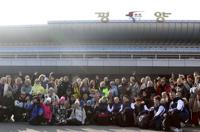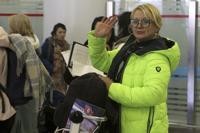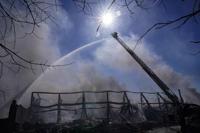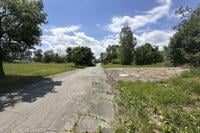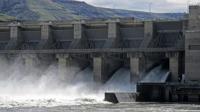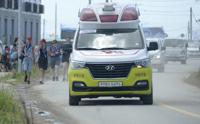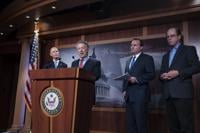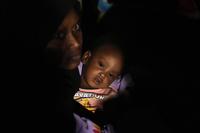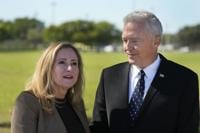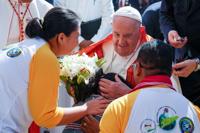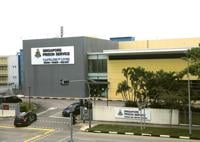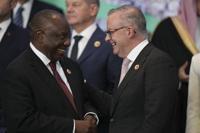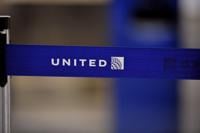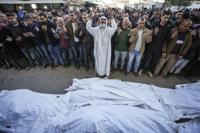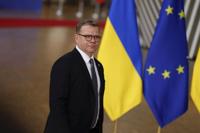A group of Russian tourists arrived in North Korea on Friday, likely the first from any country to enter the isolated state since the pandemic.
The tour underscores deepening following a meeting last September between at a cosmodrome in Russia’s Far East.
Many Russians now struggle to travel to Europe and the United States because of sanctions applied to Russia after its invasion of Ukraine. In October, Russian Foreign Minister Sergey Lavrov said he would recommend North Korea as a vacation destination.
South Korea’s government said it has no record of North Korean state media reporting on tourists entering the country since the COVID-19 pandemic.
The tour group will visit the capital, Pyongyang, and then go skiing, said Inna Mukhina, the general director of the Vostok Intur agency, which is running the tour. Vladivostok airport's online timetable shows an Air Koryo plane took off for Pyongyang at 1:39 p.m. local time Friday.
The group left from Vladivostok airport in Russia’s Far East. Mukhina said there were “lots” of people who wanted to come on the tour, adding that the group contains travelers from places across Russia including Moscow and St. Petersburg as well as the Russian exclave of Kaliningrad, sandwiched in between Poland and Lithuania. The group also includes children who study skiing at a Russian school that aims to create Olympic champions, she said.
The Russians' reasons for visiting North Korea vary, Mukhina said, suggesting some people are interested in the opportunity to visit a closed country, while others are more interested in skiing and snowboarding.
“We love skiing,” Galina Polevshchikova told the AP at Vladivostok airport shortly before getting on the flight to Pyongyang. “I really want to go there because it's probably the most closed place where you have the opportunity to do this.”
The group is not a traditional tourist group, but “a test tour delegation” that could pave the way for other Russian tourists, Mukhina said.
The trip was a surprise to Asia observers, who had expected the first post-pandemic tourists to North Korea to come from China, the North’s biggest diplomatic ally and economic pipeline.
According to a Tass report published in January, the group of tourists will visit monuments in Pyongyang such as the “Tower of Juche Idea,” named after North Korea’s guiding philosophy of juche, or self-reliance. The tourists will then travel on to Masik Pass on the east coast, where the country’s most modern ski resort is located, Tass said.
“In (Masik Pass), you will find yourself in a real paradise for winter sports lovers!” the Vostok Intur agency's website gushes. “Here you will find incredible slopes with different levels of difficulty that will satisfy the needs of both experienced skiers and beginners.”
The tour costs $750 per person, according to Tass and the tour agency.
Tass reported that the trip was arranged under an agreement reached between Oleg Kozhemyako, governor of the Primorye region, and North Korean authorities.
Kozhemyako traveled to Pyongyang in December for talks on boosting economic ties as part of a flurry of bilateral exchanges since the Kim-Putin summit. Ahead of the trip, he told Russian media he expected to discuss tourism, agriculture and trade cooperation.
The expanding ties between North Korea and Russia come as both are locked in separate confrontations with the United States and its allies — North Korea over its advancing nuclear program, and Russia over its protracted war with Ukraine.
The Kim-Putin summit deepened global suspicions that North Korea is supplying conventional arms to in return for high-tech Russian weapons technologies and other support.
North Korea has been slowly and opening its international borders as part of its efforts to revive its economy, which has been devastated by the lockdown and by persistent U.S.-led sanctions. In August, South Korea’s spy service told lawmakers that North Korea’s economy shrank each year from 2020 to 2022, and that its gross domestic product last year was 12% less than in 2016.
Chinese travelers accounted for about 90% of the foreign visitors to North Korea before the pandemic. In 2019, a record number of about 300,000 foreign tourists visited North Korea, resulting in North Korea earning between $90 million and $150 million, according to analysts’ assessments.

